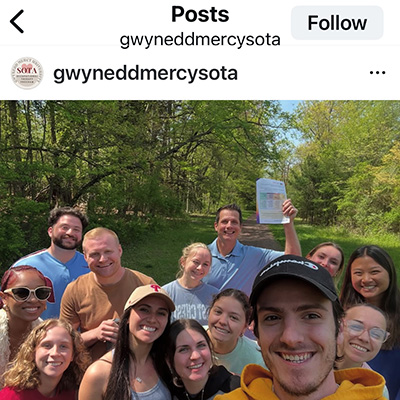Occupational Therapy Program (MSOT Degree)
Apply by May 1, 2026
The Master of Science in Occupational Therapy (MSOT) prepares competent, reflective, ethical, and compassionate professionals to practice as generalists in the field.
Our graduates understand the value of person-preferred language and conducting therapeutic practices that are occupation-based, client-centered, culturally relevant, and evidence-based in order to promote the health and well-being of individuals and society.
NEW: Through GMercyU's partnership with Penn Highlands Healthcare, you could launch your career at one of their 9 locations and receive $65,000 in loan repayment funds.
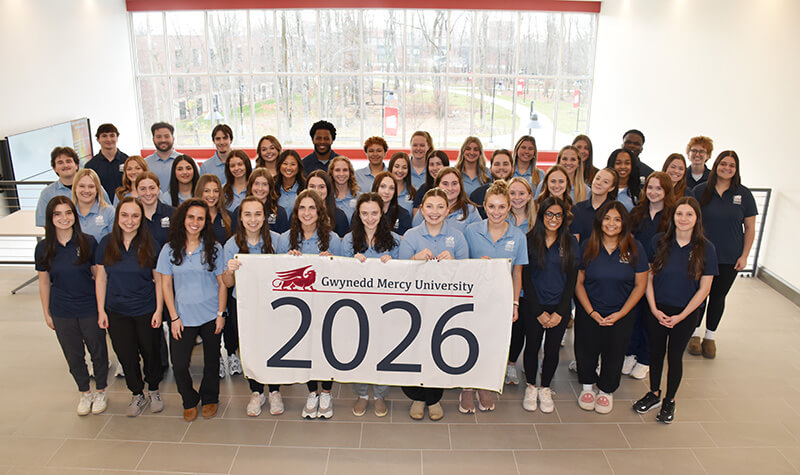
Program begins
June 1, 2026
Program length
Two years (5 academic terms and 1 fieldwork term)
Format
In-person
Did you know?
Successful completion of a master’s degree in OT is accepted as one of the two points of entry required to enter practice as an OT in the U.S.
10% tuition grant for GMercyU grads
Tuition
$1,010 per credit (Fall 2025) See below for more details.
-
$100,040
median annual salary for occupational therapists in the Philadelphia area (May 2024, Bureau of Labor Statistics*)
-
#6
ranking in U.S. News & World Report's 2026 "Best 100 Healthcare Jobs"
-
14%
projected job growth through 2034, nearly five times the national average
(Bureau of Labor Statistics)**
**Source
Accreditation

The entry-level occupational therapy master’s degree program is accredited by the Accreditation Council for Occupational Therapy Education (ACOTE) of the American Occupational Therapy Association (AOTA), located at 7501 Wisconsin Avenue, Suite 510E, Bethesda, MD 20814. ACOTE’s telephone number c/o AOTA is (301) 652-6611 and its web address is www.acoteonline.org. Graduates of the program will be eligible to sit for the national certification examination for the occupational therapist administered by the National Board for Certification in Occupational Therapy (NBCOT). After successful completion of this exam, the individual will be an Occupational Therapist, Registered (OTR). In addition, all states require licensure in order to practice; however, state licenses are usually based on the results of the NBCOT Certification Examination. Note that a felony conviction may affect a graduate’s ability to sit for the NBCOT certification examination or attain state licensure. ACOTE® accredited occupational therapy and occupational therapy assistant educational programs satisfy the states’ educational requirements in all states, the District of Columbia, and Puerto Rico. Students graduating from an ACOTE® accredited occupational therapy and occupational therapy assistant educational program are eligible to take the NBCOT certification exam and apply for licensure in all states, the District of Columbia, and Puerto Rico. For more information regarding state qualifications and licensure requirements, please refer to the AOTA State Licensure webpage.
You can also learn more here about the OT program's state licensure requirements.
Outcomes
Program Graduates and Graduation Rate
The total number of graduates from GMercyU's Master of Science in Occupational Therapy program during the four-year period of 2023-2025 was 85, with an overall graduation rate of 97%.
|
Graduation Year |
*Students Entering |
Students who withdrew for reasons |
Students Graduating |
**Graduation Rate |
|
2023 |
31 |
0 |
30 |
97% |
|
2024 |
30 |
0 |
30 |
100% |
|
2025 |
28 |
2 |
25 |
96% |
|
TOTAL |
89 |
2 |
85 |
97% |
*Students entering the program include both senior occupational science students and post-baccalaureate students. Both student groups complete the two year program of study.
**The number of students who graduated according to the published program length. If a student withdraws from the program for reasons other than academic performance, they are not counted in the graduation rate.
National Board for Certification in Occupational Therapy (NBCOT) Examination
The National Board for Certification in Occupational Therapy (NBCOT) Examination program results can be found online on the NBCOT website. Exam pass rates are based on the percentage of graduates who take and pass the exam within 12 months of graduation.
Making a Difference
Hear from Students
Program Highlights
GMercyU’s MSOT Program is dedicated to preparing future occupational therapists capable of making a real difference in the everyday lives of whom they serve to enable.
- Program philosophy that is consistent with the core values of higher education within the Mercy tradition
- 77 credit program that can be completed over a two-year period of study
- State-of-the-art classroom and practice labs
- Only program in the region that offers a dual degree of Occupational Science and Occupational Therapy
- Program that advocates for client-centered, occupation-based, and evidence-based practices
- e-Portfolio that can be used to help graduates stand out during job interviews
- Individualized faculty advisement
- Small class sizes
- Diverse fieldwork options
- Beautiful, private 145-acre campus just 30 minutes from Philadelphia
- A $65,000 loan repayment opportunity from Penn Highlands Healthcare in exchange for a three-year work commitment
Curriculum
The MSOT Program is designed to educate students to adapt to the rapidly changing and dynamic nature of contemporary health and human services delivery systems by gaining the knowledge and skills as a direct care provider, consultant, educator, manager, researcher and advocate for the profession and the consumer.
This program consists of five semesters (including summers) of didactic learning and two level II fieldwork rotations. All students must complete level II fieldwork within 24 months following completion of academic preparation.
Year 1: Summer Term 7 credits
OSC 501: Foundations of Occupational Science (3 credits)
OSC 502: Neuroscience for Occupational Therapy (2 credits)
OSC 510: Ethical Foundations in Occupational Therapy Practice (2 credits)
Year 1: Fall Term 15 credits
OSC 504: Therapeutic Use of Self (2 credits)
OSC 505: Foundations of Occupational Therapy (3 credits)
OSC 506: Creativity and Activity Analysis (2 credits)
OSC 514: Research Methods I: Evidence-based Practice (3 credits)
OSC 519: Functional Anatomy and Kinesiology for Occupational Therapy (5 credits)
Year 1: Spring Term 17 credits
OSC 511: Health and Occupational Participation of Children and Youth (3 credits)
OSC 512: Occupational Therapy Process: Children and Youth (5 credits)
OSC 513: Occupational Therapy Fieldwork I: Children and Youth (1 credit)
OSC 516: Health Care, Policy, and Advocacy (2 credits)
OSC 518: Research Methods II: Applied Research (3 credits)
OSC 521: Occupational Therapy & Upper Extremity Rehabilitation (3 credits)
Year 2: Summer Term 10 credits
OSC 613: Community and Mental Health across the Lifespan (3 credits)
OSC 614: Community and Mental Health across the Lifespan Fieldwork I (1 credit)
OSC 615: Skills for Occupation-based Practice (4 credits)
OSC 616: Transitions to Adulthood (2 credits)
Year 2: Fall Term 16 credits
OSC 610: Management and Leadership (2 credits)
OSC 617: Health and Occupational Participation of Adults and Older Adults (3 credits)
OSC 618: Occupational Therapy Process: Adults and Older Adults (5 credits)
OSC 619: Occupational Therapy Fieldwork I: Adults and Older Adults (1 credit)
OSC 620: Occupational Therapy for Adults and Older Adults with Neurological Dysfunction (3 credits)
OSC 621: Case-based learning across the lifespan (2 credits)
Year 2: Spring Term 12 credits
OSC 611: Fieldwork Level IIA (5 credits)
OSC 701: Fieldwork Level IIB (5 credits)
OSC 702: Career Success and Meaningful Life (2 credits)
Please note: All MSOT students are required to maintain health, wellness, and clearance requirements that can include the following annually – criminal background check, child abuse clearance, DHS and DOE fingerprint clearances, drug screen, and CPR certification. Students will be required to have a laptop.
OSC 501: Foundations of Occupational Science (2 credits)
Introduces the academic discipline of Occupational Science and its relationship to occupational therapy. The complex nature of occupation is explored from an interdisciplinary perspective. Emphasis on how occupational injustices can limit occupational performance and occupational participation, and how the therapeutic use of occupation can influence the development and/or recovery of persons with disabling conditions.
OSC 502: Neuroscience for Occupational Therapy (2 credits)
This course will provide students with a deep understanding of the intricate relationship between the nervous system and occupational performance. This course explores the fundamental principles of neuroscience, including the neuroanatomical and neurophysiological bases of sensory perception, emotion, cognition, learning, and movement, and how these concepts relate to occupational therapy practice.
OSC 504: Therapeutic Use of Self (2 credits)
Exploration of human behavioral theories and practice of therapeutic use of self within individual and group therapeutic contexts. Focus on understanding the occupational needs of individuals and groups, teaching-learning process, appraisal of effective communication, empathy, mindfulness, and building of rapport to foster effective therapeutic relationships.
OSC 505: Foundations of Occupational Therapy (3 credits)
Introduction to the foundations of the occupational therapy profession including its history, philosophical base, professional terminology, theory development, frames of reference, and the varied scope and roles of the occupational therapy practitioner.
OSC 506: Creativity and Activity Analysis (2 credits)
Exploration of the historical and contemporary use of creativity in the promotion of health through client-centered activities to promote health and recovery. Emphasis on the analysis, grading, and managing the complexity of therapeutic activities. Includes a practice lab.
OSC-510 Ethical Foundations in Occupational Therapy (2 credits)
This course explores the fundamental values and standards that guide ethical decision-making in the context of occupational therapy practice.
OSC 511: Health and Occupational Participation of Children and Youth (3 credits)
Examines the development, occupational behavior, and prevailing health needs of children and adolescents with or at risk for disabilities and occupational injustice. Focus on understanding children and youth as occupational beings with varied health conditions that can impact occupational performance and participation.
OSC 512: Occupational Therapy Process: Children and Youth (5 credits)
Integrates theories and the occupational therapy process of evaluation (including assessment), intervention, and targeted outcomes with children and adolescents. Includes a practice lab.
OSC 513: Occupational Therapy Fieldwork I: Children and Youth (1 credit)
Immersion experience into a therapeutic service delivery context with children or youth.
OSC 514: Research Methods I: Evidence-based Practice (3 credits)
Review of quantitative and qualitative research methodologies, appraisal of professional literature and levels of evidence, and the influence of clinical expertise and client values in supporting best therapeutic practices.
OSC 516: Health Care, Policy, and Advocacy (3 credits)
A focus on understanding health care, policy, and reimbursement that influence access to occupational therapy practice across multiple practice areas. Review of intra-professional and inter-professional roles, and the laws and regulations that influence occupational therapy practice. Promotion of occupational therapy to other professionals, service providers, consumers, third-party payers, regulatory bodies, and to the public.
OSC 518: Research Methods II: Applied Research (3 credits)
This course is designed to equip students with the knowledge and skills needed to engage in effective research practices within the occupational therapy profession. This course emphasizes the practical application of research methodologies to address real-world challenges faced by occupational therapists.
OSC 519: Functional Anatomy and Kinesiology for Occupational Therapy (5 credits)
Focus on the study of the body functions and structures of the human body with a major emphasis on functional anatomy within the domain of concern for occupational therapy and analyzing typical, atypical, and compensatory human movement across the life span.
OSC 521: Occupational Therapy and Upper Extremity Rehabilitation (3 credits)
This course focuses on the evaluation and treatment of upper extremity dysfunction from an occupational therapy perspective. This lecture/lab combination covers nerve and muscular/orthopedic issues throughout the upper extremity with an emphasis on the wrist and hand. Multiple orthotics are fabricated in the lab portion of this course.
OSC 610: Management and Leadership (2 credits)
Explores the leadership and managerial skills needed to plan, develop, market and direct the delivery of occupational therapy programs. Includes care coordination, case management, consultation, management of staffing, collaboration with other interprofessional and intraprofessional partners, and provision of fieldwork education.
OSC 613: Community and Mental Health across the Lifespan (3 credits)
This course builds upon the foundation of occupational science and occupational therapy services to prepare students to engage in holistic occupational therapy practice in a wide array of intervention settings across the lifespan. Students will develop an understanding of conceptual models for community-based practice in a variety of areas. Assessment, treatment planning and use of clinical reasoning to develop intervention strategies for clients. Premeditative, compensatory, adaptive and mental health approaches to psychosocial and physical dysfunction will be explored through case studies and community experiences.
OSC 614: Community and Mental Health across the Lifespan Fieldwork I (1 credit)
Immersion experience into a therapeutic service delivery within a community context that has a psychosocial focus for persons and populations.
OSC 615: Skills for Occupation-based Practice (4 credits)
This course is designed to provide occupational therapy students with a comprehensive foundation for the professional and healthcare skills necessary for occupation-based practice.
OSC 616: Transitions to Adulthood (2 credits)
This course connects theory to practice by examining the transition to adulthood for youth with disabilities through a conceptual lens. Different perspectives on transitions to adulthood for those with a physical disability, learning disability, developmental disability, mental illness, or chronic illness/obesity will be discussed within the contexts of postsecondary education, employment, community involvement, independent living, and social participation.
OSC 617: Health and Occupational Participation of Adults and Older Adults (3 credits)
Examines the development, occupational behavior, and prevailing health needs of adults and older adults with or at risk for disabilities and occupational injustice. Focus on understanding adults as occupational beings with varied health conditions that can impact occupational performance and participation.
OSC 618: Occupational Therapy Process: Adults and Older Adults (5 credits)
Integrates theories and the occupational therapy process of evaluation (including assessment), intervention, and targeted outcomes with adults and older adults. Includes a practice lab.
OSC 619: Occupational Therapy Fieldwork I: Adults and Older Adults (1 credit)
Immersion experience into a therapeutic service delivery context with adults and older adults.
OSC 620: Occupational Therapy for Adults and Older Adults with Neurological Dysfunction (3 credits)
This course is designed to provide students with the therapeutic reasoning to evaluate and treat adults and older adults with occupational performance deficits resulting from neurological illnesses and impairments. Building on theories and concepts from prior coursework, students will learn to assess, remediate, habilitate, and rehabilitate, deficits impacting occupational performance and participation.
OSC 621: Case-Based Learning Across the Lifespan (2 credits)
This course is designed to assist the student as they transition to practice, which includes concentrated work on case studies across the lifespan from a wide array of practice areas. This course aids the student in recognizing and meeting the expectations and requirements of Level II Fieldwork and focused concentration for the NBCOT examination for the occupational therapist.
OSC 611: Fieldwork Level IIA (5 credits)
A 12-week fieldwork experience designed to promote clinical reasoning and reflective practice to gain the skills as a generalist therapist in a selected practice area.
OSC 701: Fieldwork Level IIB (5 credits)
A 12-week fieldwork experience designed to promote clinical reasoning and reflective practice to gain the skills as a generalist therapist in a selected practice area.
OSC 702: Career Success and Meaningful Life (2 credits)
Preparation methods to taking the NBCOT® exam, future job interviewing, service to society, and the completion of an e-portfolio with strategies to engage in scholarly activities to become a lifelong learner [online course].
Students are required to have a laptop with camera capabilities.
Complete 77 credit program, including a term of full-time Level II fieldwork* Maintain a GPA of 3.0 or higher.
*Must be completed within 24 months following completion of academic coursework.
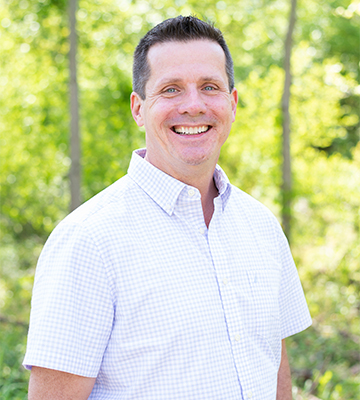 Thomas Mernar, PhD, OTR/L
Thomas Mernar, PhD, OTR/L
Position: Associate Professor and Program Director, Occupational Science and Occupational Therapy
Did You Know? Dr. Mernar founded the OS and OT programs at GMercyU. He has been a licensed occupational therapist (OTR) for more than 20 years, with experience working clinically in acute and sub-acute traumatic brain injury units, sub-acute skilled nursing, long-term care, and assisted living facilities.
Read bio Mindy MacRone-Wojton, DSc, OTR/L
Mindy MacRone-Wojton, DSc, OTR/L
Position: Assistant Professor, Occupational Science and Occupational Therapy
Did You Know? Dr. Wojton has been a licensed Occupational Therapist (OTR®) for more than 20 years. She has spent most of her career as a school-based therapist, working with and advocating for students with attention deficit disorder, autism, cerebral palsy, emotional disturbance, genetic disorders, learning disabilities, and intellectual disabilities.
Read bio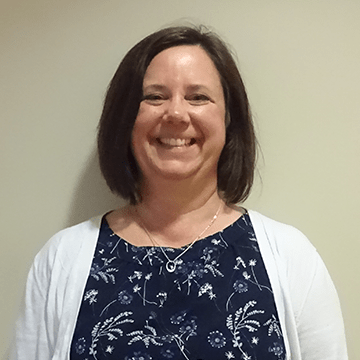 Sharon Montgomery, OTD, OTR/L, CHT, CEAS
Sharon Montgomery, OTD, OTR/L, CHT, CEAS
Position: Assistant Professor, Occupational Science and Occupational Therapy
Did You Know? Dr. Montgomery has been a registered and licensed Occupational Therapist (OTR®) for more than 30 years. She has spent her career working in a hospital setting providing both adult inpatient and outpatient rehabilitation, and she holds a specialty certification in Hand Therapy.
Read bio
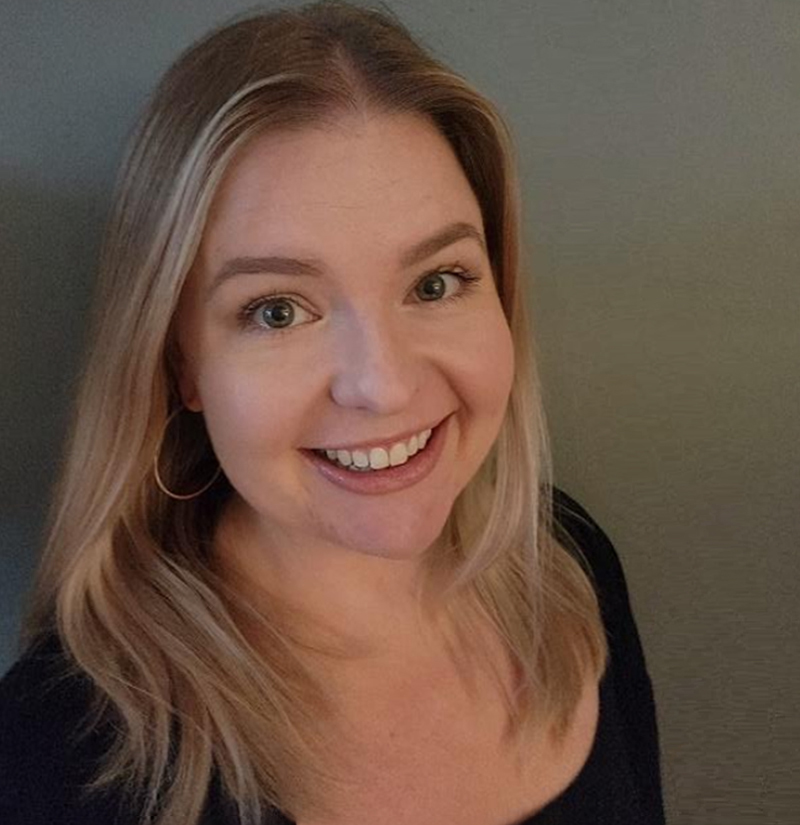 Megan R. Mueller, OTD, OTR/L, BCPR
Megan R. Mueller, OTD, OTR/L, BCPR
Position: Assistant Professor, Occupational Science and Occupational Therapy
Did You Know? A registered and licensed Occupational Therapist (OTR®) for more than 10 years, Mueller has worked in the acute inpatient rehabilitation setting with adults who sustained spinal cord injuries, cerebrovascular accidents, traumatic brain injuries, and numerous other
neurologic and orthopedic conditions.
Read bio
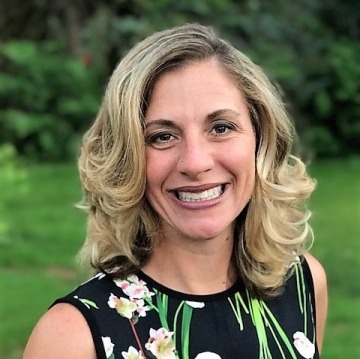 Michele Peterson, EdD, OTR/L
Michele Peterson, EdD, OTR/L
Position: Assistant Professor and Academic Fieldwork Coordinator, Occupational Therapy
Did You Know? Professor Peterson has been licensed Occupational Therapist (OTR®) for more than 20 years with experience working in pediatrics, specifically school-based, preschool age, birth to three, and pediatric in-patient and out-patient settings. She holds a specialty certification in the Sequential Oral Sensory Approach to feeding.
Read bio
Follow Us on Instagram!
The Student Occupational Therapy Association (SOTA) participates in professional development, fundraising, service, and events.
Mission Trip to Kenya
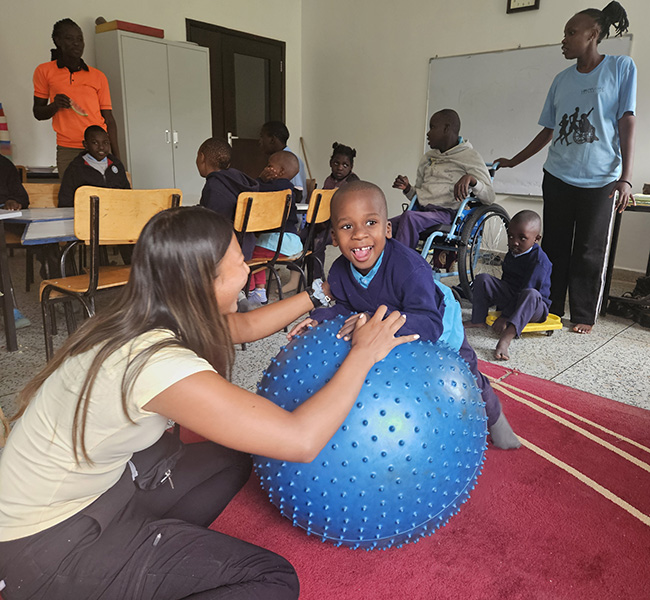
Learn about the program's mission trips to Kenya to help care for local orphans and vulnerable children.
Admission
The application cycle for 2026 opens on July 19, 2025. No GRE required to apply. Submit your application on either:
Please only submit one application. All required materials are due by May 1, 2026. Applicants are responsible for submitting timely transcripts and confirming that all of the requested materials have been successfully submitted and received. Applications will not be reviewed until they are both complete and verified.
The Occupational Therapy Master’s Program at GMercyU considers for admission those applicants who possess academic and professional promise necessary for the development of future competent, reflective, ethical, and compassionate practitioners.
Our Program operates on a rolling admissions basis in which completed applications are reviewed by the faculty throughout the admissions cycle to determine applicant eligibility for interviews. Interviews will be conducted during the late fall and early winter. Admissions decisions are generally made within one month after the interview. Interested individuals are advised to complete their application as early as possible to ensure timely consideration. Admission to our Program is only available on a full-time basis. Earned baccalaureate degree and all prerequisite courses must all be completed prior to the start of the Program on June 1, 2026.
In order to be considered for admission, applicants must:
- Have earned a baccalaureate degree from an accredited college or university with a minimum cumulative GPA of 3.00 (based on a 4.00 scale).
- Complete the following prerequisite courses with a minimum combined GPA of 3.1 (on a 4.00 scale). Anatomy and Physiology I & II must be completed within the past 5 years; the remainder of the prerequisites must be completed within the past 10 years
- Anatomy and Physiology I & II (with a laboratory component): 8 credits
- General Psychology: 3 credits
- Abnormal Psychology/Psychopathology: 3 credits
- Developmental (Lifespan) Psychology: 3 credits
- Sociology/Anthropology: 3 credits
- Statistics/Research Methods: 3 credits
- Submit a letter of completion showing a minimum of 20 hours of observation under a registered occupational therapist (OTR)
- Submit 3 letters of recommendation attesting to your academic and/or professional abilities. One of these letters must be from a registered occupational therapist (OTR).
- Submit a personal statement that highlights your unique qualities and how these qualities may translate to your future success as an occupational therapist
- If selected, participate in an interview with members of the Occupational Therapy faculty
International Students
To enroll as a graduate-level international student at Gwynedd Mercy University, you need to:
- Have your transcript evaluated and have a course-by-course evaluation by either the World Education Services or Educational Credential Evaluators if you hold a bachelor's degree from an institution outside of the U.S.
- Score at least a 79 on the Internet-based TOEFL test or a 6 on the IELTS test
Students entering into and engaged during the full course of the Occupational Therapy Program must possess essential skills (observation, communication, motor function, intellectual-conceptual abilities, integrative and quantitative abilities, and behavioral and social attributes) to perform all educational (classroom, virtual, laboratory, and clinical), fieldwork, and experiential preceptorship tasks in an accurate, safe, and efficient manner, to the satisfaction of the faculty, with or without reasonable accommodation.
Observation
- Normal or corrected visual ability sufficient for client observation and assessment to ensure safety and accurate measurement.
- Ability to obtain information from written documents, videotaped data, graphic images and measuring devices accurately and within a reasonable time frame.
- Ability to sufficiently monitor and assess health needs of clients.
Communication
- Interact with others in a professional, courteous, and collaborative manner while using good judgment for confidentiality.
- Demonstrate respect for the dignity of each person.
- Maintain integrity in word and deed with others.
- Read, speak, and write in English effectively using proper grammar, spelling, and punctuation.
Motor Function
- Assume a variety of body postures that can include continuous sitting, standing, walking, bending, reaching, pulling, lifting, stooping, kneeling, and crawling.
- Demonstrate manipulation skills to effectively carry and use therapeutic equipment (i.e. assistive devices, weights).
- Demonstrate movement and mobility skills that are required for safe handling of persons of various sizes in order to perform safe transfers and guarding during functional mobility with and without an assistive device.
- Pushing and pulling in order to provide resistance for the purposes of maneuvering and transitioning persons such during bed mobility, using a wheelchair, and for sitting and standing balance activities.
- Demonstrate eye-hand coordination, postural control, strength, endurance, and integrated function of the senses (vision, hearing, smell, and touch) during the therapeutic process.
Intellectual-conceptual Abilities
- Demonstrate verbal and written insight into one’s own academic and clinical performance.
- Demonstrate the mental capacity to understand, problem-solve, and make judgments in order to promote ethical reasoning.
- Demonstrate the ability to collect, document, and analyze evaluation data and implement client-centered and occupation-based interventions.
Integrative and Quantitative Abilities
- Demonstrate the mental capacity to understand, problem-solve, and make judgments in order to promote safety.
- Intellectual capacities to measure, evaluate, calculate, reason, analyze and synthesize information specific to client care.
- Demonstrate the ability to apply information learned from the classroom to a therapeutic practice environment.
- Demonstrate the ability to use online databases and online discussion boards, as well as the ability to use a computer to complete forms, reports, and papers.
Behavioral and Social Attributes
- Demonstrate mature and professional behaviors with other students, faculty, colleagues, and clients.
- Be receptive and open to mentor feedback about academic or fieldwork performance and adherence to academic and fieldwork policies and procedures.
- Establish and maintain a therapeutic relationship with clients.
- Ability to work cooperatively and collaboratively with others.
Students should review the Technical Standards for the MSOT program carefully and identify if additional supports are needed for any portion (didactic and clinical) of the MSOT program. Students are encouraged to contact the Student Accessibility Services Office (215-646-7300 extension 21427) to arrange an individualized consultation to discuss any support services or accommodations they may need. Student Accessibility Services is located within Counseling Services in The Griffin Complex, 2nd-floor window hallway of Rotelle Lounge.
No more than six graduate credits from another accredited institution may be applied toward GMercyU’s MSOT degree. If the applicant has completed graduate-level occupational therapy coursework within the past five years, prerequisite coursework and respective syllabi will be reviewed by the faculty admissions committee to determine if the applicant has met all course learning outcomes and the associated ACOTE standards of any course for which the student would receive credit. The program does not award course credit for work experience.
Estimated Program Costs
The Occupational Therapy Program at Gwynedd Mercy University offers two tracks leading to a Master of Science (MS) degree:
- 3+2 Dual Degree Occupational Science Graduate Track (1 year)
- Traditional Post-Baccalaureate Graduate Student Track (2 years)
For a breakdown of the estimated tuition and other applicable fees for the MSOT program, please review the cost fact sheet:
